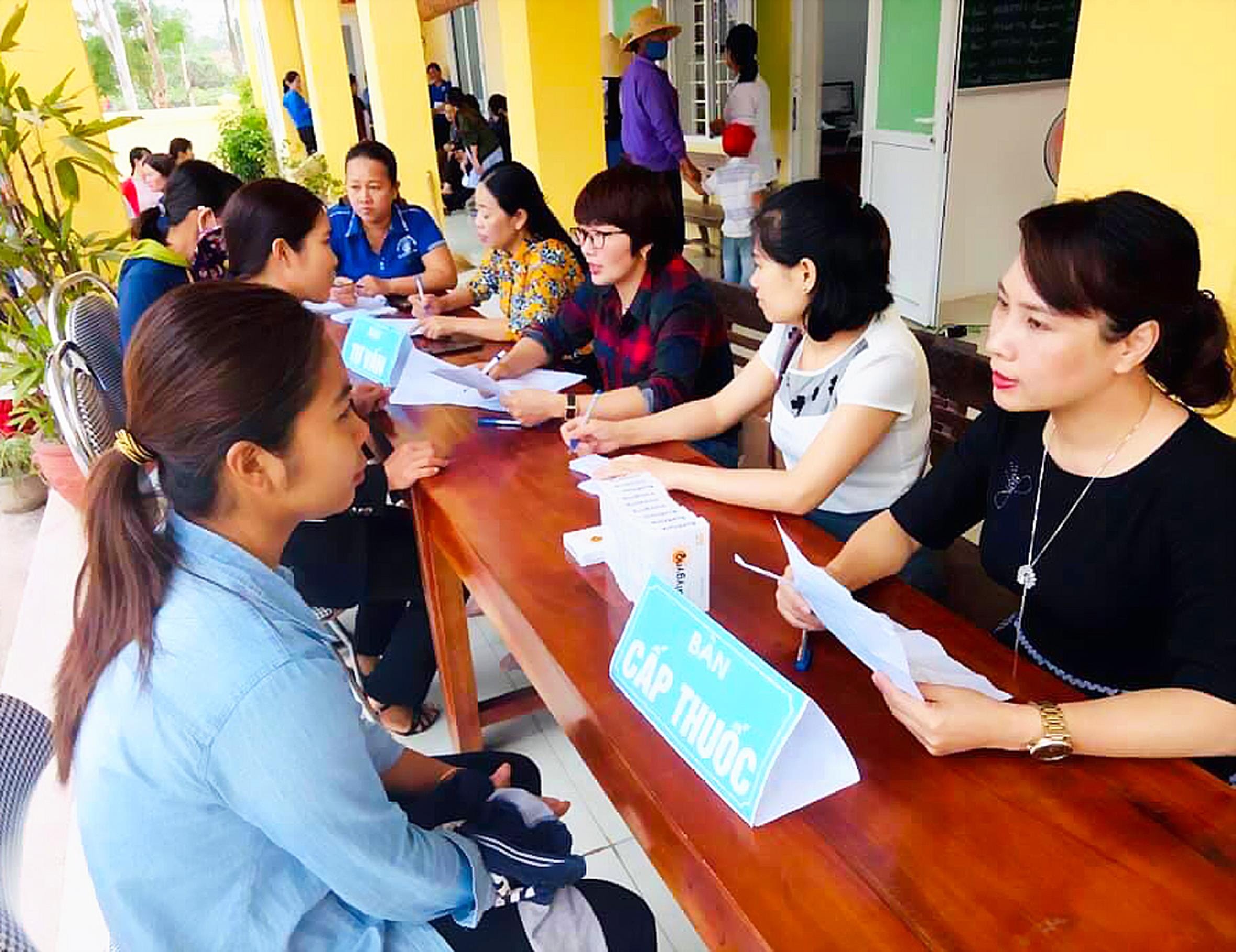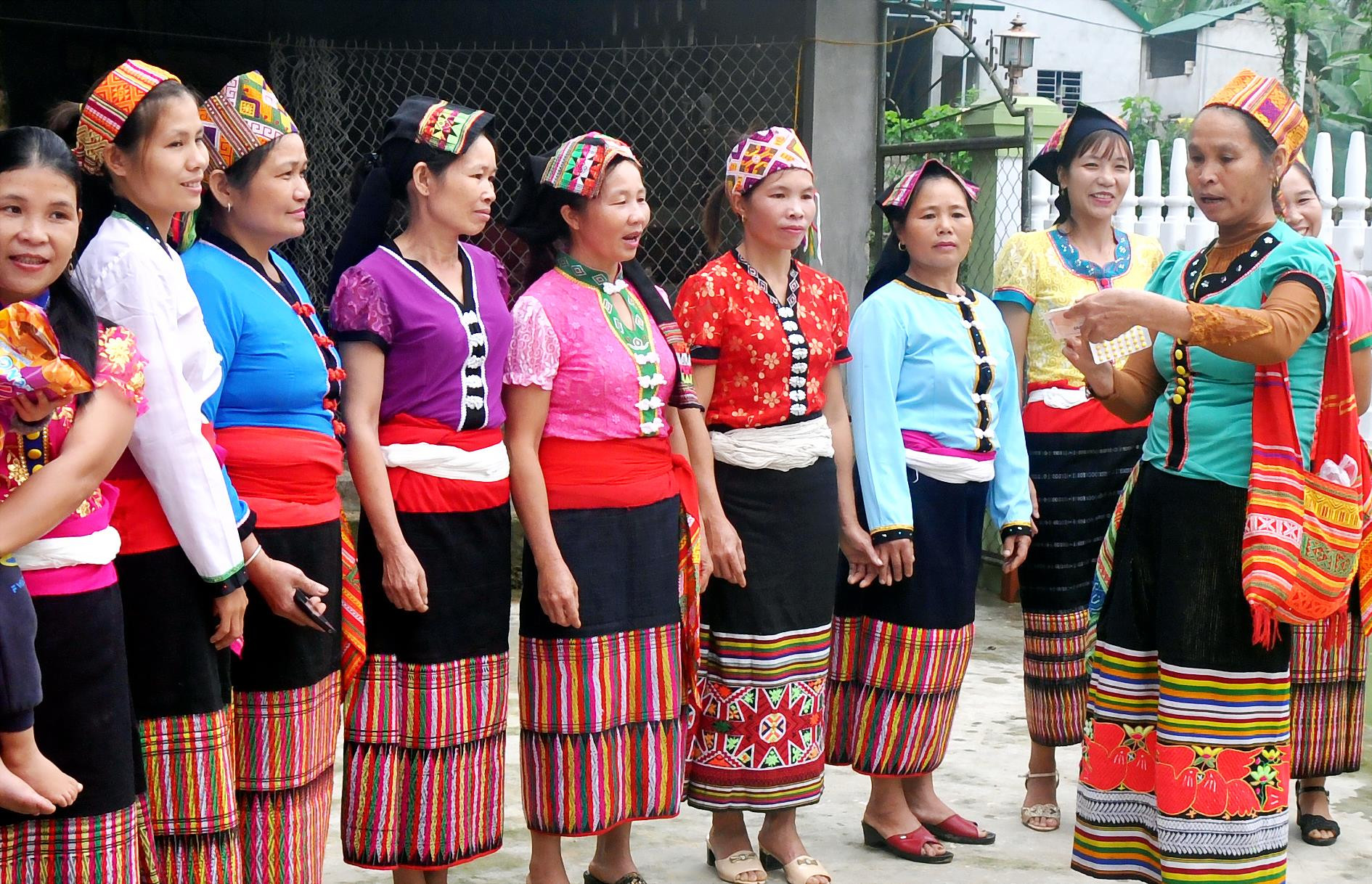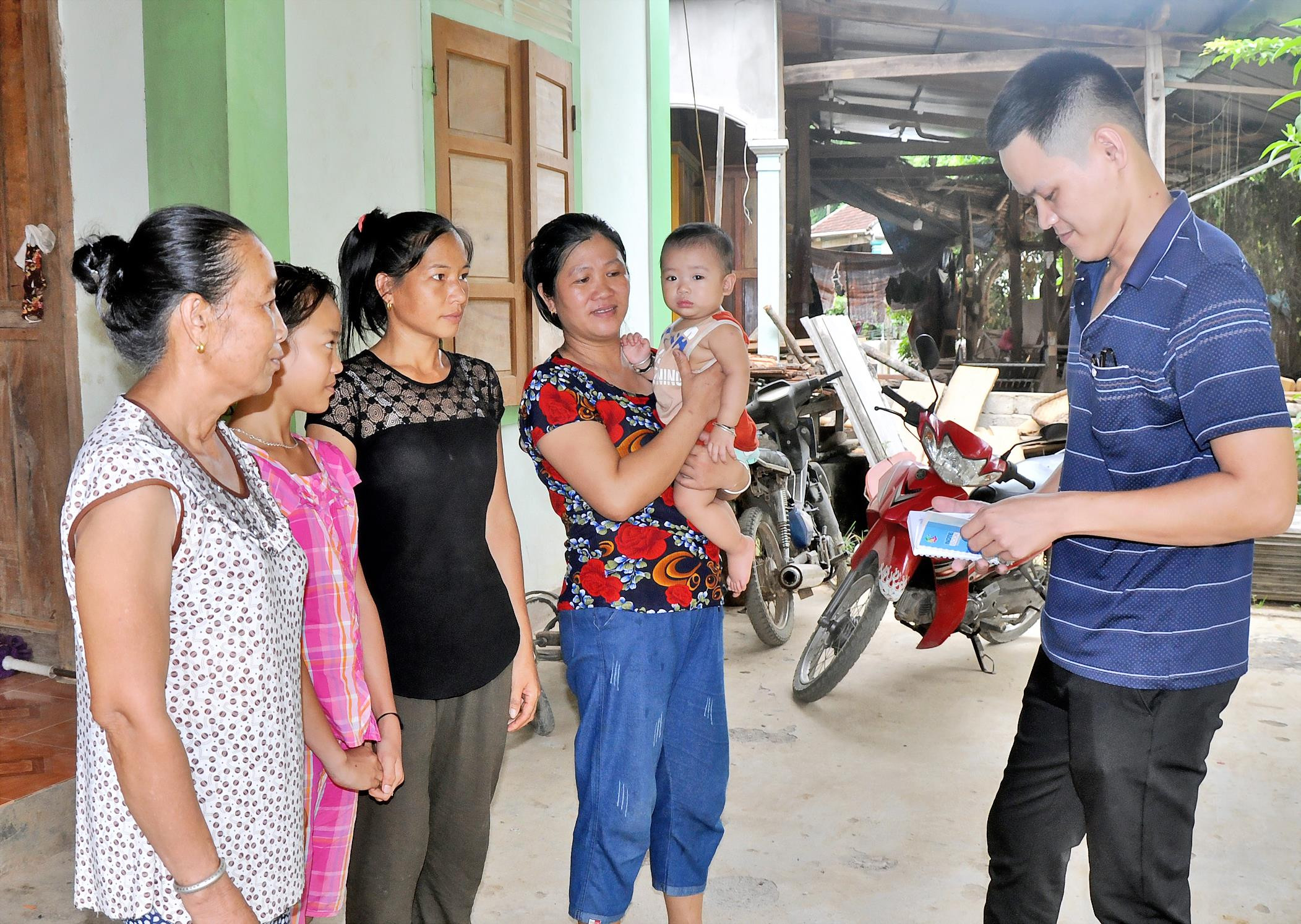When population policy enters the village covenant
(Baonghean) - Integrating and including population policy into village covenants is a policy that has been implemented quite early in Nghe An.
When the village has "laws"
Regarding Quynh Thien ward (Hoang Mai town), talking about including population policy in the village covenant, many people in the block expressed their agreement. According to the convention here, if the population policy is violated, the families will not be considered for recognition as cultural families. And in any block where people violate, they will not be recognized as a cultural block.
According to the leader of this ward, in 2018, the implementation of conventions and village covenants was carried out very seriously and 31 households had their cultural family title revoked, including families of officials, party members, and teachers.
 |
| Consulting on contraceptive measures for people in Quynh Lien commune (Hoang Mai town). Photo: Song Hoang |
In addition, some hamlets such as Tan Hung and Thinh My, although the movements were quite vibrant, because of the high number of households violating the third child or more, their cultural block title was also revoked. Assessing the implementation of village covenants and conventions on population work, Ms. Nguyen Thi Tam - population officer of Quynh Thien ward said that the regulations in the village covenants and conventions were discussed and approved by the people in the block, so when they were implemented, they were strictly followed by the households.
"We also determined that, in the current situation, when the mechanisms for handling violations of population policies are tending to be "loosened", the village covenants and conventions will be an important basis for localities to do a good job of population work, helping people to raise their sense of responsibility towards their neighborhoods and residential areas," said Ms. Tam.
 |
| Marketing contraceptives to people in Dien Chau district. Photo: Song Hoang |
The whole province currently has more than 8,000 villages, hamlets and hamlets with village covenants and conventions, reaching a rate of more than 96%. The implementation of village covenants and conventions has made practical contributions to social management in residential communities, contributing to bringing the policies and laws of the Party and State in general, and the field of Population - Family Planning in particular, into life.
In addition, by integrating population and development content into community activities, cultural festivals, village and hamlet conventions, the entire political system and all people have been mobilized to participate more actively in population and family planning policies. Thereby, contributing to improving the effectiveness of state management, preserving and promoting good traditions and customs of the community at the grassroots level; eliminating outdated procedures; forming social normative values in accordance with local traditions and identities; promoting and expanding democracy at the grassroots level.
However, besides the achieved results, currently the implementation of village covenants and conventions at the grassroots level also has difficulties and inadequacies, especially at present.
For many years, the coastal commune of Dien Bich has always been one of the "hot spots" of Dien Chau district in terms of the rapid increase in the rate of third births. In previous years, the handling of families violating population policies in the area was carried out according to Decision No. 43/2015/QD-UBND dated August 21, 2015 of the Provincial People's Committee and was considered quite strict. However, since February 2018, after Decision 11/2018/QD-UBND was issued, the implementation of population work in the commune has encountered many difficulties.
To implement Decision 11, the commune also directed hamlets to add content on handling violations of population policy to the village covenants and conventions of the units. However, after more than a year of implementation, the results have not been worth much. Talking about this, Mr. Nguyen Viet Man, Chairman of the Commune People's Committee, said: "The rate of third births in Dien Bich commune is about 30% and has not shown any signs of decreasing. Currently, in the village covenants and conventions of the hamlets, it is stipulated that if there is a violation, households will voluntarily contribute to the population fund. However, although there are quite specific regulations, in the past two years there has been no case of compliance."
Difficult to reduce the rate of third child birth
In the first 6 months of 2019, the whole province had 5,208 children giving birth to their third child or more, an increase of 19 children compared to the same period and accounting for 22.8% of the total number of children born in the whole province. The increase in the number of third children is not unexpected as in the past two years, the sanctions for giving birth to a third child have changed a lot and there are not enough sanctions to deter.
Meanwhile, the implementation of village conventions and regulations is facing many difficulties and is mainly based on the spirit of voluntariness. For example, in Hung Nguyen district, for 25 consecutive years, hamlet 2 of Hung Tan commune had no one giving birth to a third child, but this year this record was broken.
Mr. Nguyen Kim Bang - Director of the Center for Population - Family Planning of Hung Nguyen district also admitted: "Previously, villages, hamlets, and units that did well in population policies were praised and criticized clearly. But now these regulations have all been "cut", so people have no motivation to strive and maintain. This also causes difficulties in implementing village and unit conventions because there is no specific basis for building regulations... In fact, in the first 6 months of the year, the third child birth rate of Hung Nguyen increased by 6% compared to the same period and is higher than the average rate of the province at 26%".
 |
| Ms. Lu Thi Suu, Vinh Kim village, Hoa Son commune, Anh Son district, promotes contraceptive methods. Photo: Cong Kien |
Dien Chau district is also one of the localities that early implemented village covenants and conventions in hamlets. After 7 years of implementation, comparing the implementation of village covenants and conventions at two different times (2012 - 2019), Ms. Tran Thi Luong - Director of the Center for Population - Family Planning said: "In the past, we built village covenants and conventions based on Decision 76 (later replaced Decision 43) and according to the discussion and consensus of the people in the village, hamlet, so the implementation of sanctions was very favorable and the people agreed. But now, the documents and instructions are still general, so the implementation of policies is unclear and difficult to apply in practice".
 |
| Mr. Nguyen Dinh Nghia, Tan Hop village, Tam Thai commune, Tuong Duong district, encourages women to practice birth control. Photo: Cong Kien |
Sharing the same opinion, a representative of the Population and Family Planning Center of Hoang Mai town said: "The cutting of cultural titles is in accordance with the conventions and village regulations, but this sanction is not strong enough so it does not have a high deterrent effect."
In the coming time, the Population and Family Planning work of Nghe An is expected to face many difficulties, especially at a time when villages and hamlets continue to merge and the implementation of village covenants and conventions may be interrupted. Currently, the province is also directing relevant sectors to study the "framework" to develop regulations on village covenants and conventions in the new period. However, regardless of the form, only when it correctly reflects the thoughts, reflects the reality at the grassroots level and closely follows the policies and guidelines, will village covenants and conventions be truly effective and convenient when put into practice.


